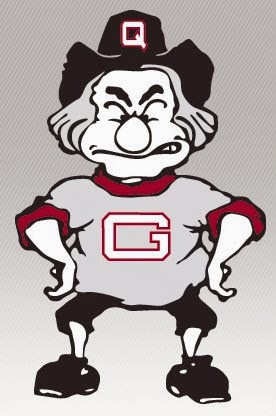Bladenboro police Chief Chris Hunt walked Claudia Lacy from her house to a nearby trailer park. Crime scene tape surrounded one of the wooden swing sets at the center of the homes.
An ambulance was parked next to the swing set. Inside the ambulance, a black body bag rested. Inside that body bag lay her son, Lennon Lacy, 17, found hanged from the swing set.
A trailer park resident discovered the body hanging from a noose of black and blue belts at 7:25 a.m. on Aug. 29. The discovery of the star football player’s body immediately sent shockwaves through the town and ignited a firestorm of controversy over race relations.
Jamie Walker, a sports blogger in Atlanta and former football player for Bladenboro High School, knows the sense of community people there feel.
“It’s the type of town where everyone knows your name and everything that you do,” said Walker in an email interview with The Guilfordian. “It has a lot of good people and they love their sports.”
If the people of Bladenboro love their sports, then Lacy was infatuated with them. The varsity football player spent his free time training and dreaming of playing in the NFL.
“He was very serious about being a professional, very passionate about it,” said his brother, Pierre Lacy, in an interview with The Guardian. “He never changed his mind or wavered from the course.”
On the night of Aug. 28, Lacy was preparing for a big game the next day against the West Columbus Vikings. At about midnight, his father, Larry Walton, saw him leave his room where he was packing for school to get a glass of water. Later, Walton heard the door open and shut.
That was the last time anyone has admitted to seeing Lacy alive.
Some members of the community feel that investigators have failed to answer the many questions surrounding his death. People in Bladenboro and across North Carolina now wonder if race had anything to do with Lacy’s death.
“Our greatest prayer is that this was not a lynching,” said Rev. William Barber, president of the North Carolina NAACP, at a memorial service for Lacy. “But we must rely on law enforcement and hope they don’t give a predetermined answer. We expect a full investigation that gives us the truth.”
An autopsy report released Oct. 15 echoed investigators’ claims that there was no evidence of foul play. In conversations with the family and others, investigators have insinuated that the recent death of Lacy’s close uncle might have driven him to suicide.
Family members do not think that Lacy took his own life.
“I know my son,” Claudia Lacy told The Guardian. “The second I saw him I knew he could not have done that to himself — it would have taken at least two men to do that to him.”
Family members pointed out that the swing set, in plain view of about a dozen trailers, would have been an unlikely choice for a suicide.
Both the undertaker and Claudia told the Guardian that marks on Lacy’s body struck them both as high unusual. They also said that someone switched Lacy’s new Air Jordans for white sneakers that were too small for him.
Many in the community wonder if someone killed Lacy because of his race. A few have suggested that he was murdered for dating an older white neighbor. Some saw this scenario as more likely after Lacy’s body was desecrated.
Race relations have simmered in Bladenboro for years. Some in the black community there call the town “Crackertown” because of its large white population.
“Something significant always stuck out when we practiced … the backdrop of a Confederate Flag, high on a flagpole behind the school property in someone’s yard,” wrote Walker in a column in which he remembered his time playing football in Bladenboro.
“I came to understand the historical significance of the flag, but for me as an African-American, it served as a reminder (that) despite how great your new start may be, there is someone that may not agree.”
The hanging death of Lacy has jarred many black athletes’ memories of racism they have encountered.
Walker remembers playing middle school baseball in a nearby town and facing a team from Bladenboro.
“While I was batting, their coach told their pitcher to ‘throw it past their eyes, throw it past all them n—– eyes’,” Walker said in an email interview.
“All I could do is sit back, shake my head and stay focused, but it just went to show you just how hateful people could be.”
The issue of racism in sports extends far beyond Bladen County.
Guilford sophomore and Quakers defensive back Karl Roberts remembers an away game his high school football team in Charlotte played a few days before Halloween in 2010. The previous year, the attendance zones changed so that his school became predominantly black while many white students moved to the opposing school.
“When we went up there, their fans came dressed in monkey suits,” said Roberts. “They had banana peels that they left in the stadium. Their excuse was that it was Halloween and it was their costume.”
Whether or not racism contributed to Lacy’s death, it does serve as a reminder that the specter of racism continues to haunt North Carolina, both on and off the sports field.
“I think it’s still a big deal,” said Roberts. “People kind of overlook it because they think racism isn’t a big deal anymore, but it still is.”












